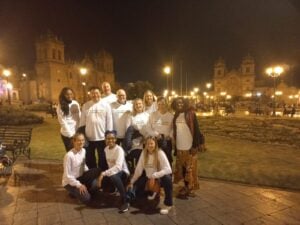Discover everything you need to know about volunteering in Bolivia with Abroaderview.org, from the meaning of Sucre and La Paz to the best tours, meals, and how to fundraise with our platform.
Bolivia, a landlocked country in South America, is known for its diverse culture, rich history, and stunning landscapes. Sucre, the constitutional capital, and La Paz, the administrative capital, are two of its most prominent cities. In this comprehensive guide, we will explore how you can make a difference by volunteering in Bolivia with Abroaderview.org.
Understanding Sucre and La Paz
Sucre, meaning “sugar” in Spanish, was named in honor of the Venezuelan independence leader Antonio José de Sucre. The city boasts well-preserved colonial architecture and is a UNESCO World Heritage site. Learn more about Sucre here.
La Paz, on the other hand, is nestled within a deep valley and surrounded by the snow-capped Andes mountains. The city is renowned for its unique topography and vibrant indigenous culture. Discover more about La Paz here.
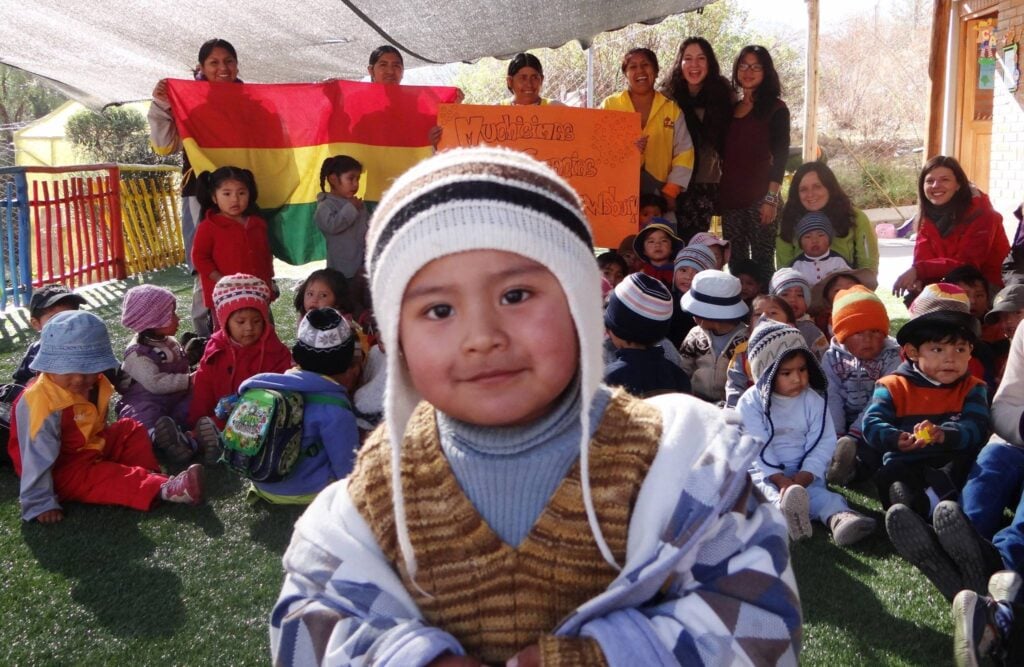
Programs Offered
Abroaderview.org offers a wide range of volunteer programs in Bolivia, including:
- Teaching English
- Medical and Dental projects
- Orphanage support
- Elderly care
- Community development
You can find detailed information about each program here.
Arriving in Bolivia
To volunteer in Sucre or La Paz, you should fly into Alcantari International Airport (SRE) or El Alto International Airport (LPB) respectively. From there, an Abroaderview.org representative will pick you up and guide you through the rest of your journey.

Applying and Fundraising
To apply, visit the Abroaderview.org application page. Additionally, Abroaderview.org offers a fundraising platform to help you cover the costs of your volunteer experience. Learn how to fundraise here.
Exploring Sucre and La Paz: Top 6 Tours
- Sucre City Walking Tour
- Cal Orck’o Dinosaur Park
- La Paz Cable Car Tour
- Witches’ Market
- Tiwanaku and Puma Punku
- Moon Valley
Must-Try Bolivian Cuisine: Top 6 Meals
- Salteñas
- Llajwa
- Anticuchos
- Saice
- Fricase
- Silpancho

Safety, Accommodations, and Host Families
Bolivia is generally safe for travelers, but it’s essential to exercise caution and follow local advice. During your volunteer experience, you will live with a local host family, offering you an authentic cultural experience while ensuring your safety and comfort.
Reviews from Abroaderview Volunteers
My name is Maria, and I recently had the opportunity to volunteer with Abroaderview.org in La Paz, Bolivia, where I participated in their Teaching English program. The experience was nothing short of life-changing. Not only did I get to make a difference in the lives of local children, but I also learned so much about Bolivia’s rich culture and history.
From the moment I arrived, I felt welcomed and supported by the Abroaderview.org staff and my host family. They went above and beyond to ensure my comfort and safety during my stay. My host family was exceptionally kind and always made sure I had everything I needed. The meals they prepared were delicious, and I enjoyed learning about Bolivian cuisine.
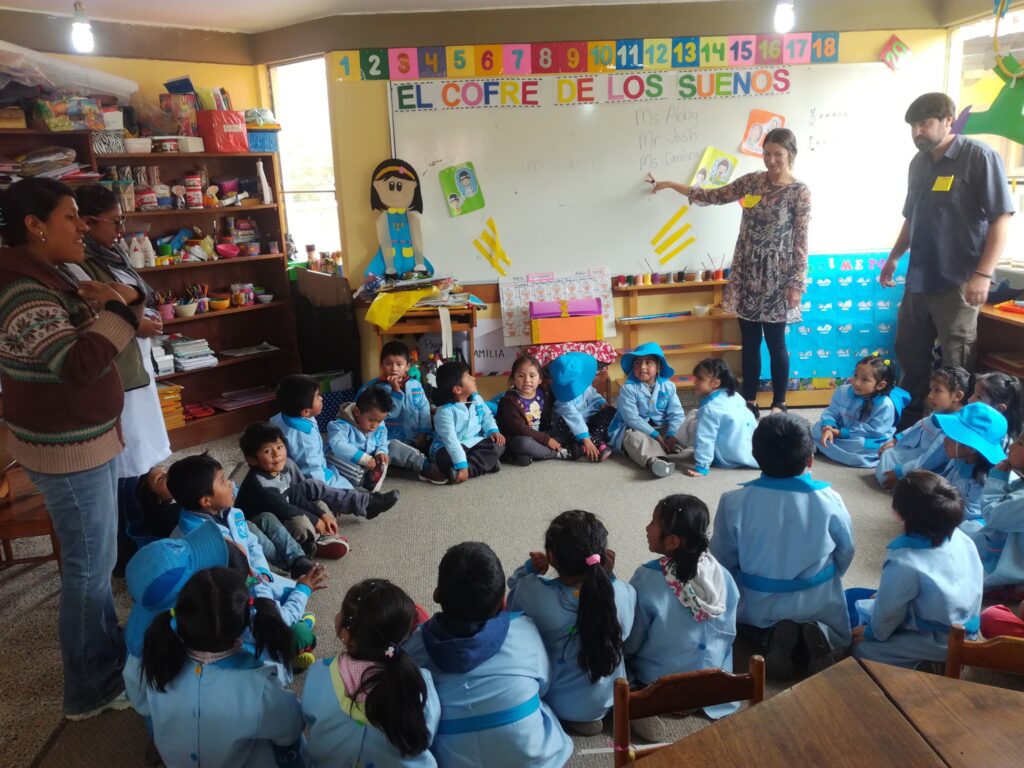
The teaching program itself was rewarding and challenging at the same time. The children were eager to learn, and their enthusiasm was contagious. It was inspiring to see how much progress they made in just a few weeks. Alongside my fellow volunteers, I developed lesson plans and activities that catered to the students’ needs and interests.
During my free time, I explored La Paz’s stunning landscapes, from the colorful Witches’ Market to the awe-inspiring Moon Valley. I also had the chance to practice my Spanish and learn some local slang.
I wholeheartedly recommend Abroaderview.org and the Teaching English program in La Paz. This experience has left a lasting impact on me, and I am eager to continue volunteering in the future.
James’ Experience in Medical and Dental Projects in Sucre
My name is James, and I recently volunteered in Sucre, Bolivia, with Abroaderview.org’s Medical and Dental Projects. This incredible experience allowed me to gain invaluable hands-on experience while providing much-needed healthcare services to the local community.
From the moment I applied, the Abroaderview.org team was responsive and supportive, providing me with all the necessary information to prepare for my trip. Upon arrival, I was greeted warmly by the local coordinator, who introduced me to my host family. My host family was amazing – they made me feel like a part of their family and provided me with a comfortable and safe home away from home.
The Medical and Dental Projects were eye-opening and educational. Working alongside local professionals, I was able to hone my skills while learning about the unique healthcare challenges faced by the Bolivian community. The patients we served were incredibly grateful for the care they received, and I was touched by their resilience and strength.
During my time in Sucre, I also had the chance to explore the city’s rich history and beautiful colonial architecture. I visited local markets, tried delicious traditional dishes, and even learned some traditional Bolivian dances.
Volunteering with Abroaderview in Sucre was a truly unforgettable experience. I am grateful for the friendships I made, the skills I developed, and the positive impact I was able to have on the community. I highly recommend the Medical and Dental Projects in Sucre to anyone looking to make a difference while gaining hands-on experience in healthcare.
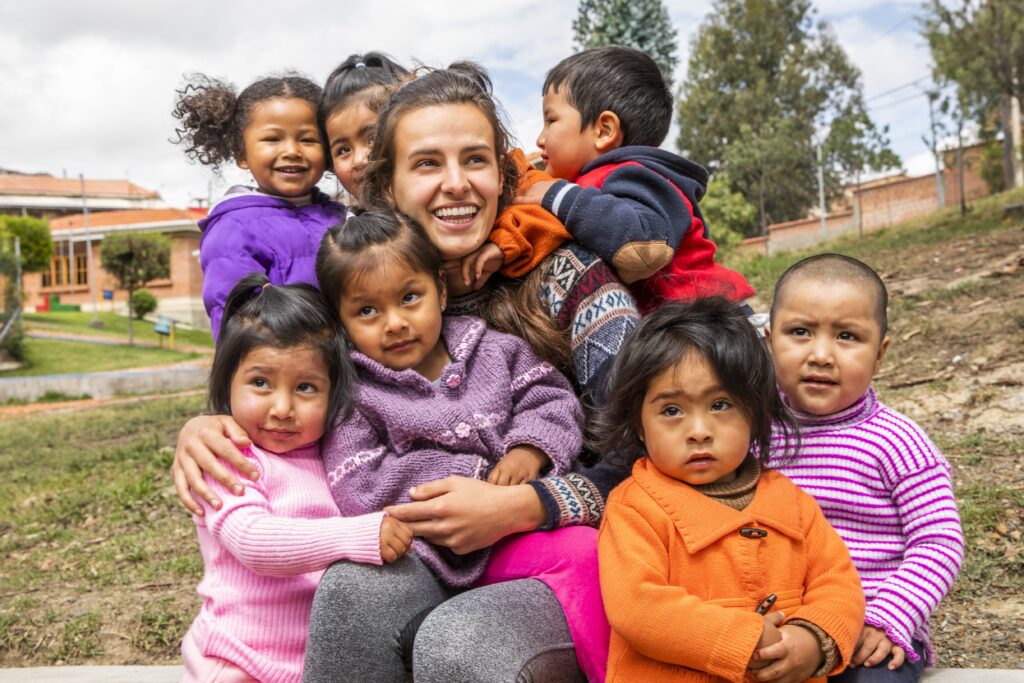
Packing List: 6 Essential Items
- Water purification tablets or portable water filter
- Sunscreen and hat
- Sturdy walking shoes
- Rain jacket
- Spanish-English dictionary or phrasebook
- Personal medications and first-aid kit
Weather and Local Customs
Bolivia experiences diverse weather patterns due to its varying altitudes and topography. In Sucre and La Paz, the climate is generally temperate with dry winters and rainy summers. It is crucial to pack for various weather conditions, as temperatures can fluctuate dramatically between day and night.
Bolivian customs are a unique blend of indigenous, mestizo, and Spanish influences. It’s essential to respect local traditions and customs while volunteering. For instance, always ask for permission before taking photos of locals, and dress modestly when visiting religious sites.
10 Bolivian Holidays
- New Year’s Day (January 1)
- Carnival (February or March, dates vary)
- Good Friday (March or April, dates vary)
- Labor Day (May 1)
- Corpus Christi (June, dates vary)
- Bolivian Independence Day (August 6)
- All Saints’ Day (November 1)
- Christmas Day (December 25)
- Aymara New Year (June 21)
- Feast of the Virgin of Guadalupe (September 8)
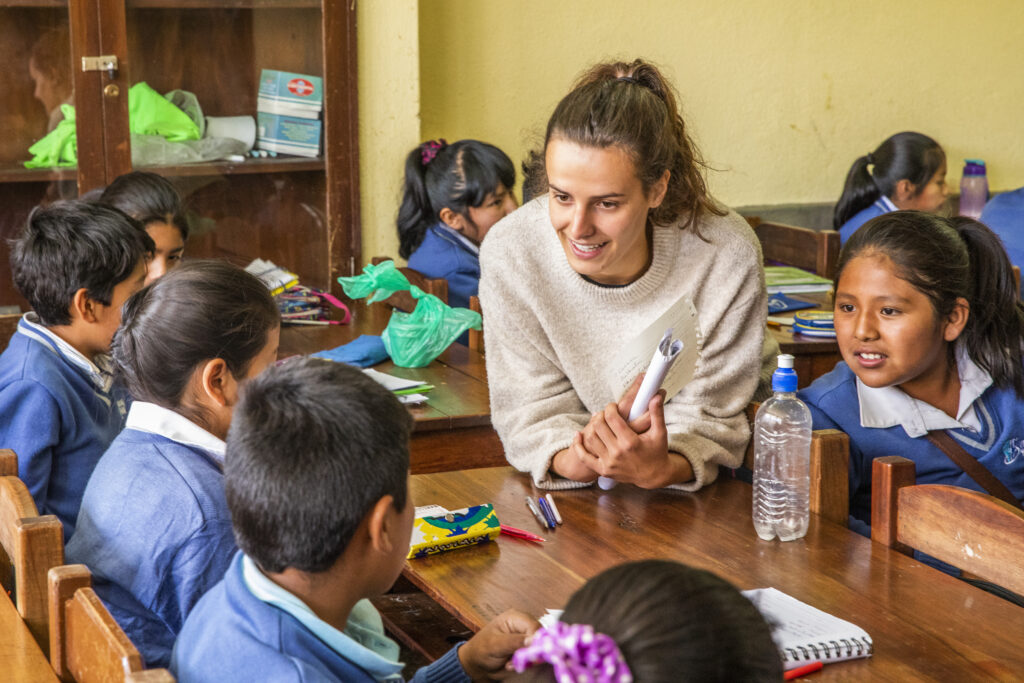
10 Bolivian Slang Words and Phrases
- Jallalla (Aymara for “cheers” or “long live”)
- Chévere (Cool or awesome)
- Challa (A ritual offering to the earth goddess Pachamama)
- Wawa (Baby or small child)
- Camba (Person from the eastern lowlands)
- Alteño (Person from the highlands)
- Cholita (Indigenous or mestizo woman)
- Tranca (Traffic jam)
- Pata (Friend or buddy)
- Chuma (Hangover)
By following this comprehensive guide and visiting the Abroaderview.org website, you will be well-prepared for your volunteering experience in Bolivia. Your adventure awaits!
Other blogs:


